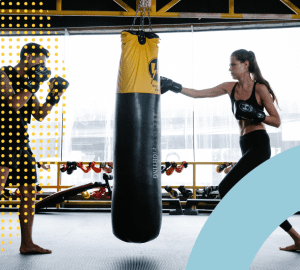In a world driven by biological imperatives, it’s easy to reduce fitness to a mere pursuit of physical strength and endurance. However, fitness encompasses so much more than just the physical realm. It extends its transformative power to our mental, emotional, and even spiritual well-being. Embracing a holistic approach to fitness means recognizing that it’s not just about the number of reps or miles logged, but about nourishing the mind, connecting with our emotions, and nurturing our soul. In this article, we will delve into the holistic power of fitness, exploring its multidimensional nature and discovering how it can unlock our full potential in all aspects of life. Prepare to broaden your perspective and embark on a journey that transcends the boundaries of traditional fitness paradigms.
If fitness is not about competition, what is it about? The aim of an exercise program for most people should be to get enough vitality to get through a busy day without injury or fatigue; to have energy left over after work to enjoy their leisure time; to recover quickly from exertion; and to be making improvements in fitness so your body won’t limit your enjoyment of life.
Increasing your fitness is an investment in your future health and level of physical activity
A high level of fitness means that all the systems of your body will remain healthy. Your cells, skin, digestion, muscles, bones, brain, nerves, blood supply, excretion and lymphatic systems will all contribute strongly to maintaining a well functioning mind and body.
Fitness is also about getting the chance to express your potential. A high fitness level will mean you are keen to get out of bed in the morning and meet the challenges of the day. It’s getting through a day with energy left over to relax and enjoy yourself.
It’s being able to go for a bushwalk without worrying about your dicky knee. It’s being able to play a game of basketball and keep up with the play. It’s going to the gym and enjoying the feeling of working out your muscles. It’s being able to fully participate in an aerobics class.
Cut back on the amount of exercise if you get sick. Think about all those metabolic processes that are important in maintaining and developing your body as well as fighting the effects of aging. If you add the strain of fighting an infection or disruption, and then add to that the stress and strain of exercise, you may do yourself more harm than good.
If you get injured, don’t cut back on the amount of exercise but change the type of exercise to avoid any activity aggravating your injury. Use appropriate exercise to stimulate the holistic power of fitness.
Relationships between fitness and lifestyle
Ask yourself if you really need to be able to run 25 or 30 kilometers. If your lifestyle doesn’t require such a high level of performance, then you need a different type of fitness. The ability to regularly run two to three kilometers a few times per week is probably enough to keep your body fit enough to meet the demands of work and play. If you keep yourself lean and healthy, then you are, by definition, fit.
There is also a relationship between “hard” fitness (running, lifting heavy weights, extreme endurance), “soft” fitness (grace, flexibility, coordination, balance) and “team” fitness (your ability to work in with others as part of a group, requiring anticipation and an understanding of the capacity of others).
Your life needs a balance between these different types of fitness. If all you do is hard exercise, your body will eventually stiffen up and break down due to the constant wear and tear. If all you do is soft exercise, you will be graceful and supple but your body will be unable to take the strain of sudden exertion. We are also a social species, so you need the stimulus and challenge of regular physical interaction with others.
Decide your own personal fitness goals and then work towards them
You must go through a process of the holistic power of fitness, desiring the new you, taking a realistic look at your current fitness, planning the process that will create the new you, implementing the program, monitoring your progress, and finally achieving the new you.
The best way to start a new exercise program is to take it easily, by building the program up over a period of weeks, months and years. Small changes in lifestyle and behavior will quickly become exercise habits, at a pace allowing your body to recover from physical exertion and adapt.
Exercise is meant to improve your health, so don’t let your exercise habit become obsessive, either in the long term or the short-term. Look for a balance in your life and accept that, as you make compromises, your fitness program will go through ups and downs.
Mark is a fitness expert for www.lifetips.top, and he regularly writes about health and fitness tips to help people improve their health and physical appearance.








